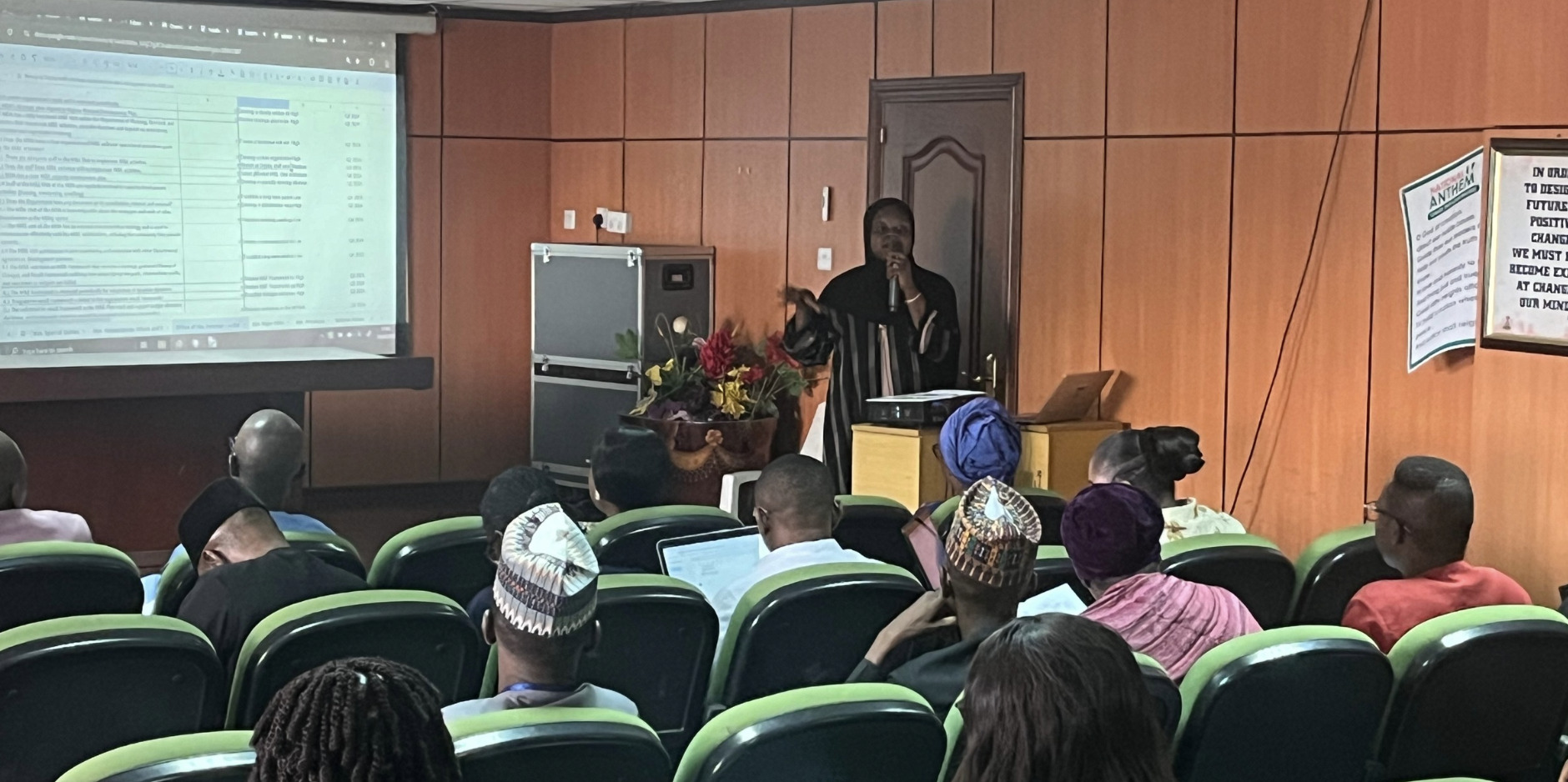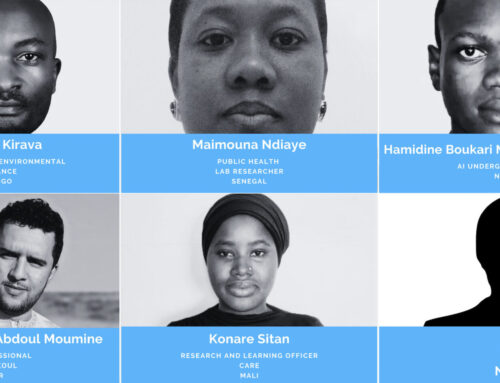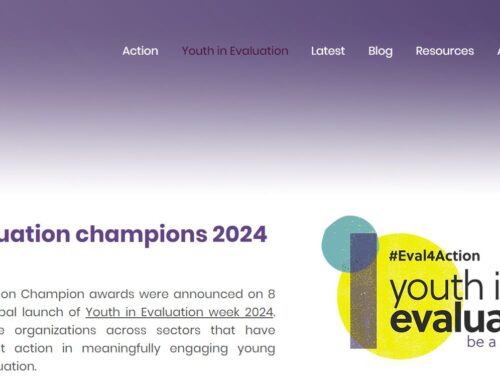The ongoing efforts of the World Bank’s Global Evaluation Initiative, CLEAR AA, and Cloneshouse underscore the importance of strengthening government agencies’ M&E capacities. In a recent collaboration, Cloneshouse partnered with the Federal Ministry of Budget and Economic Planning (FMBEP) to evaluate the M&E capacity and compliance of 34 Federal Ministries, Departments and Agencies (MDAs) with the National M&E Policy of Nigeria.
In this piece, we will share three key lessons from the technical assistance provided to the FMBEP in actualizing the assessment of the 34 Federal MDAs on their M&E Capacity and compliance with the Nigeria M&E Policy.
Lesson 1: Standardization of tools
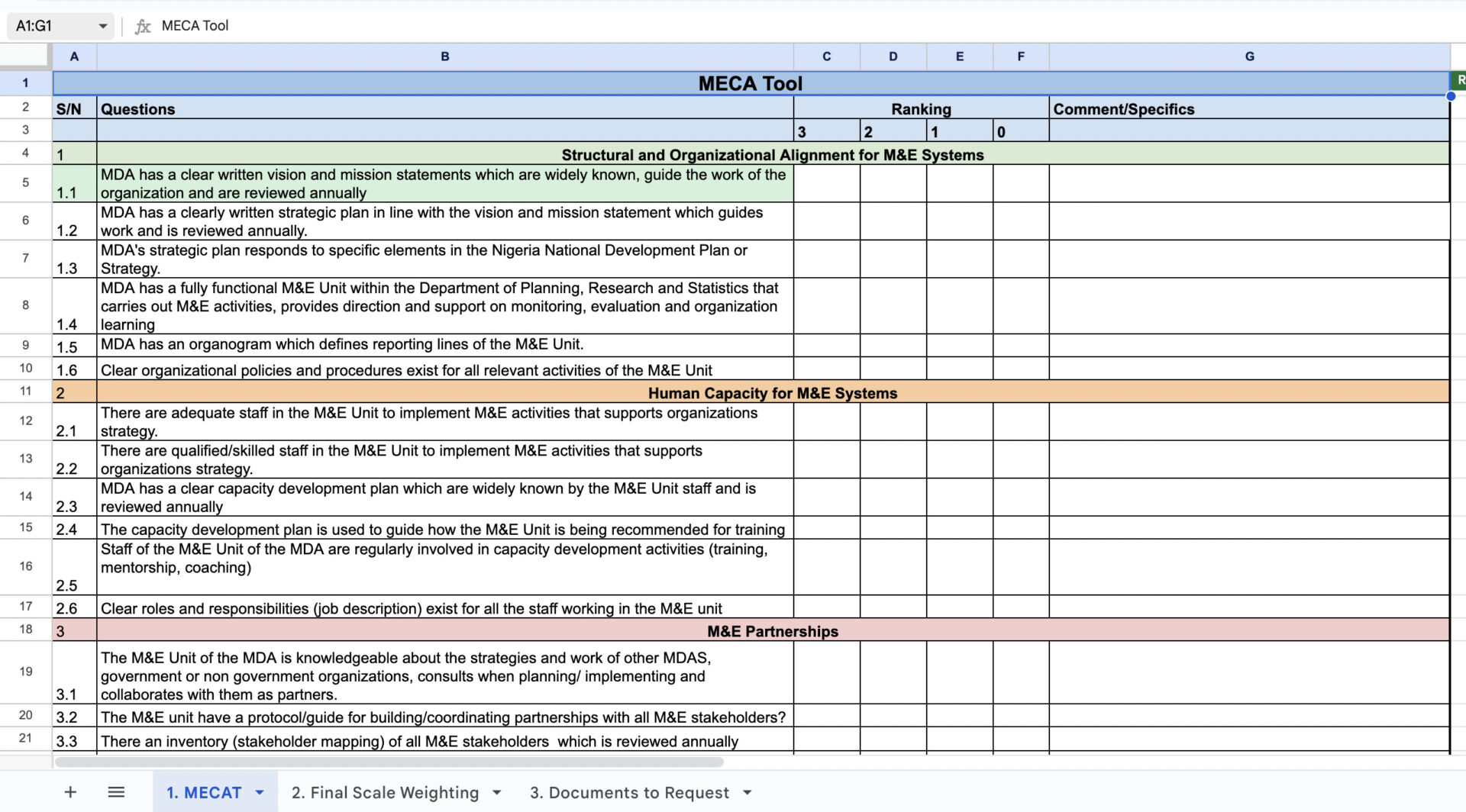
Standardized frameworks are essential for conducting effective M&E capacity assessments. Initially, the project referred to the process as an “Organizational Capacity Assessment.” However, upon reviewing relevant M&E capacity documents, the team adopted the more accurate term “Monitoring and Evaluation Capacity Assessment (MECA)” and thus, the tool “MECAT”. This ensured alignment with established best practices, which are outlined in resources; Monitoring and Evaluation Capacity Assessment Toolkit User Guide by USAID and MEASURE Evaluation, M&E systems-assessment-tool by FHI 360, all linking to the 12 domains of a functional M&E system as highlighted in Making Monitoring and Evaluation Systems Work: A Capacity Development Toolkit by Marelize Görgens and Jody Zall Kusek.
Furthermore, still in the design stage, it was agreed that a consistent rating scale (0-3) would be used for data analysis. Each question was rated from 0 to 3, with 0 indicating M&E practice is not in place in the MDA, and 3 indicating M&E practice is totally in accordance with the statement. This approach was not limited to individual elements. Final M&E capacity scores were also assigned, ranging from “0” (Embryonic) to “3” (Mature). This facilitated a clear understanding of each MDA’s overall M&E development stage.
Lesson 2: Digitalization of Data Collection
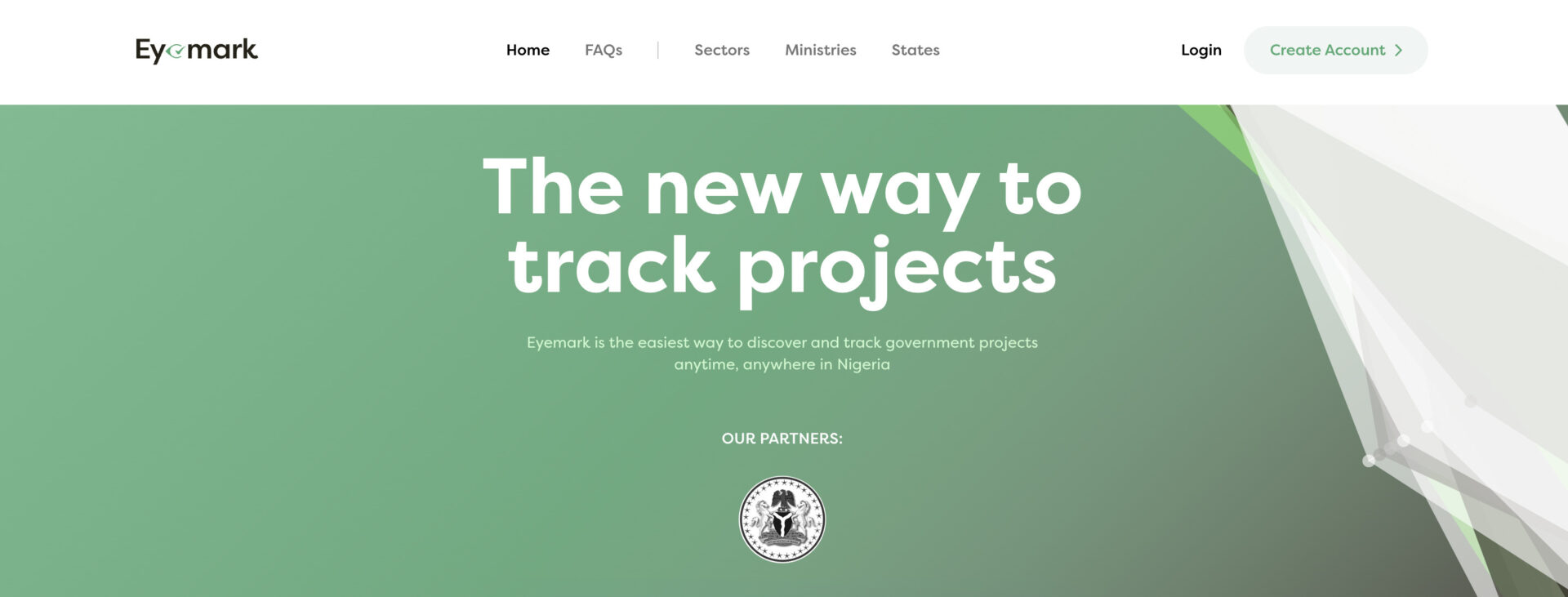
The M&E landscape is evolving rapidly, with technology and AI playing an increasingly vital role. As highlighted by Amani Mwambura Ismail in his blog, “How to Digitalize Monitoring & Evaluation Systems”, traditional M&E processes are time-consuming and involve cumbersome paperwork. However, with digital tools, organizations can streamline their M&E efforts, enhance data accuracy, and ultimately maximize the impact of their projects.
This assessment leveraged the EyeMark platform for data collection. Compared to traditional methods that could take months, data collection using EyeMark was completed within 15 days. Using the National M&E platform demonstrates credibility and highlights the growing importance of technology in monitoring and evaluation to support evidence-based decision-making and policy formulation.
Lesson 3: Importance of Transparency, Communication, and Collaborative Validation
The FMBEP organized a two-day validation session to share the findings with the MDAs and discuss the adoption and implementation of the action plans to address capacity and compliance gaps. While some MDAs contested their assigned ratings, this experience underscores the crucial role of transparency, communication, and a collaborative validation process.
The validation sessions ensured clarity by revealing that the assessment team comprised trained members of the National M&E Department utilizing the EyeMark platform. Furthermore, splitting the Ministries into smaller roundtable discussions facilitated a deeper exploration of disagreements and identified gaps. MDAs in the “Embryonic” and “Emerging” categories learned from their “Growing” and “Mature” counterparts, fostering a collaborative learning environment. Ultimately, this process led to developing internal recommendations by various MDAs to address identified gaps.
Conclusion
This assessment achieved several critical objectives, including establishing a baseline for how well MDAs comply with the National M&E Policy, assessing how M&E systems are integrated into program design and resource allocation, evaluating the institutionalization of M&E practices within Ministries, and identifying MDA-specific gaps in M&E implementation with customized improvement plans.
While conducting an M&E capacity assessment of this scale can be initially daunting, the ultimate benefits are undeniable. Robust M&E systems equip government agencies with the data-driven insights to make informed decisions and optimize resource allocation. By prioritizing standardization, digitalization, and collaborative validation, as highlighted in this blog post, governments can ensure they have the M&E capabilities to achieve their development objectives and promote positive change.
The lessons learned from this assessment can be applied to strengthen M&E capabilities within government agencies in Nigeria and across the globe.
About the Authors
Oludotun Babayemi has over 15 years of experience developing monitoring and evaluation systems for government and non-government organizations. At the same time, he has 10 years of experience in design, implementation, and facilitation of baseline studies, mid-term evaluations, ex-post evaluations, conducting research, and evaluation in projects related to Agriculture, WASH, Health, Education, Youth Empowerment, and other cross-cutting sectors. He has the skills and experience that enable him to draw out recommendations and suggestions on any restructuring, re-design, and amendments that might be desired and necessary to improve programme effectiveness. Oludotun is a Stanford University Draper Hills Center on Democracy, Development, and the Rule of Law Fellow; a member of the Nigeria Evaluation Association; the American Evaluation Association and the Institute of Management Consultants. He is the Global Future Officer at Cloneshouse.
Rachael Okoronkwo is a PMD-Pro certified development practitioner with four years of experience in project planning, implementation, monitoring, evaluation, and learning for government and non-governmental organisations. Her interests span a wide spectrum of gender, education, public health, public policy advocacy and youth leadership. She holds the distinction of being a Fellow of the Friedrich Ebert Stiftung Nigeria. Additionally, Rachael is an active member of the EvalYouth Global Network, where she passionately advocates for amplifying the youth perspective and promoting informed decision-making in development initiatives through evaluations. She excels in designing robust MEL plans, conducting data collection, analysis, data protection and management, and synthesis to deliver actionable insights for enhanced project and program outcomes. She is currently the M&E officer at Cloneshouse.

